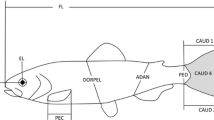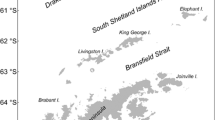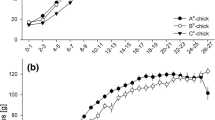Abstract
Maternal hormones can play an important role in the development of fish larvae. Levels of the stress hormone, cortisol, in females are elevated by social interactions and transferred directly to the yolk of eggs, where they may influence developmental rates. In some vertebrates, prenatal exposure to high levels of testosterone determine early growth rates, social status and reproductive success. The present study examined whether post-fertilization exposure of eggs of the tropical damselfish, Pomacentrus amboinensis (Pomacentridae), to natural levels of cortisol or testosterone directly affects larval morphology at hatching. Maternal and egg levels of cortisol and testosterone varied widely among clutches of eggs from local populations around Lizard Island on the Great Barrier Reef. The morphology of larvae produced by these local fish populations also varied widely and differed significantly among sites (e.g., standard length: 2.6–3.4 mm; yolk sac area: 0.01–0.13 × 10−2 mm2). Laboratory experiments showed that elevated cortisol levels in the egg reduced larval length at hatching, while slight elevations in testosterone increased yolk sac size. The influence of testosterone, and to a smaller extent cortisol, on larval morphology differed among egg clutches. These differences were partly explained by differences in initial egg hormone levels. Morphological changes induced by experimental hormonal regimes encompassed the entire range of variability in body attributes found in field populations. It is unclear whether cortisol influences growth alone or development rate or both. Testosterone appears to influence yolk utilization rates, and has no significant effect on growth, in contrast to its role in later developmental stages. Maternally derived cortisol and testosterone are important in regulating growth, development, and nutritive reserves of the embryo and larvae of this fish species. Factors that influence the maternal levels of cortisol and testosterone may have a major impact on larval mortality schedules and, therefore, on which breeding individuals contribute to the next generation.
Similar content being viewed by others
Author information
Authors and Affiliations
Additional information
Received: 19 August 1998 / Accepted: 16 November 1998
Rights and permissions
About this article
Cite this article
McCormick, M. Experimental test of the effect of maternal hormones on larval quality of a coral reef fish. Oecologia 118, 412–422 (1999). https://doi.org/10.1007/s004420050743
Issue Date:
DOI: https://doi.org/10.1007/s004420050743




